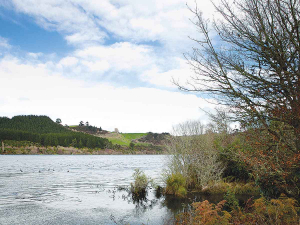Waikato dairy effluent breaches lead to $108,000 in fines
Two farmers and two farming companies were recently convicted and fined a total of $108,000 for environmental offending.
 The update of the Waikato Progress Indicators (WPI) – Tupuranga Waikato was presented to the Strategy and Policy Committee meeting on 6 September.
The update of the Waikato Progress Indicators (WPI) – Tupuranga Waikato was presented to the Strategy and Policy Committee meeting on 6 September.
An annual report on the Waikato region’s state of wellbeing notes some significant trends for the 2022 update.
The update of the Waikato Progress Indicators (WPI) – Tupuranga Waikato was presented to the Strategy and Policy Committee meeting on 6 September.
The WPI scorecard is a summary of 32 critical environmental, social, cultural, and economic indicator trends over the past 15 years.
It showed 12 improving trends, 11 worsening trends and nine trends with no significant change.
Significant positive trends were seen in road safety, increased building activity, improved air quality, higher average incomes and better educational attainment, while significant negative trends included poorer perceptions of community engagement, more waste to landfill, higher water use and lower frequency of physical activity.
The report also compared the Waikato region with the New Zealand average on specific key indicators, with the Waikato ahead in te reo Māori speakers, social connectedness, physical activity, community pride, community engagement, life expectancy and building activity, and below in road safety, crime, regional GDP, income and recycling.
Report author Dr Beat Huser says the results of the WPI programme, which annually monitors a range of publicly available data, provides a robust basis to discus regional challenges and identify priorities for action and partnership.
The results are shared with the Government, the Waikato Plan, the Waikato Wellbeing Project, and Momentum Waikato, among other stakeholders.
“It’s like taking the pulse of the region, and if you see there is something wrong then you can undertake further tests and analysis and try to do something about it,” Huser says.
Strategy and Policy Committee members noted that there was a lot of work to do within the region and the report did not show much to celebrate.
However, Huser told councillors that the devil lies in the detail, and the WPI only scratches the surface.
“As the name suggests, indicators are only indicating. They summarise complex data into a single number but often mask underlying issues. Additional data and more detailed analysis is required to provide actionable insights, for example at a local level or about a particular issue.”
The World Wide Sires National All Day Breeds Best Youth Camp Best All Rounder plaudit has become family affair, with 2026 Paramount Cup winner Holly Williams following in her sister Zara's footsteps.
DairyNZ is giving New Zealand farmers a unique opportunity to gain hands-on governance and leadership experience within the dairy sector.
Herd improvement company LIC has posted a 5.2% lift in half-year revenue, thanks to increasing demand for genetics.
According to the latest Fresh Produce Trend Report from United Fresh, 2026 will be a year where fruit and vegetables are shaped by cost pressures, rapid digital adoption, and a renewed focus on wellbeing at home.
The Roar is a highlight of the game hunting calendar in New Zealand, with thousands of hunters set to head for the hills to hunt male stags during March and April.
OPINION: The past few weeks have been tough on farms across the North Island: floods and storms have caused damage and disruption to families and businesses.